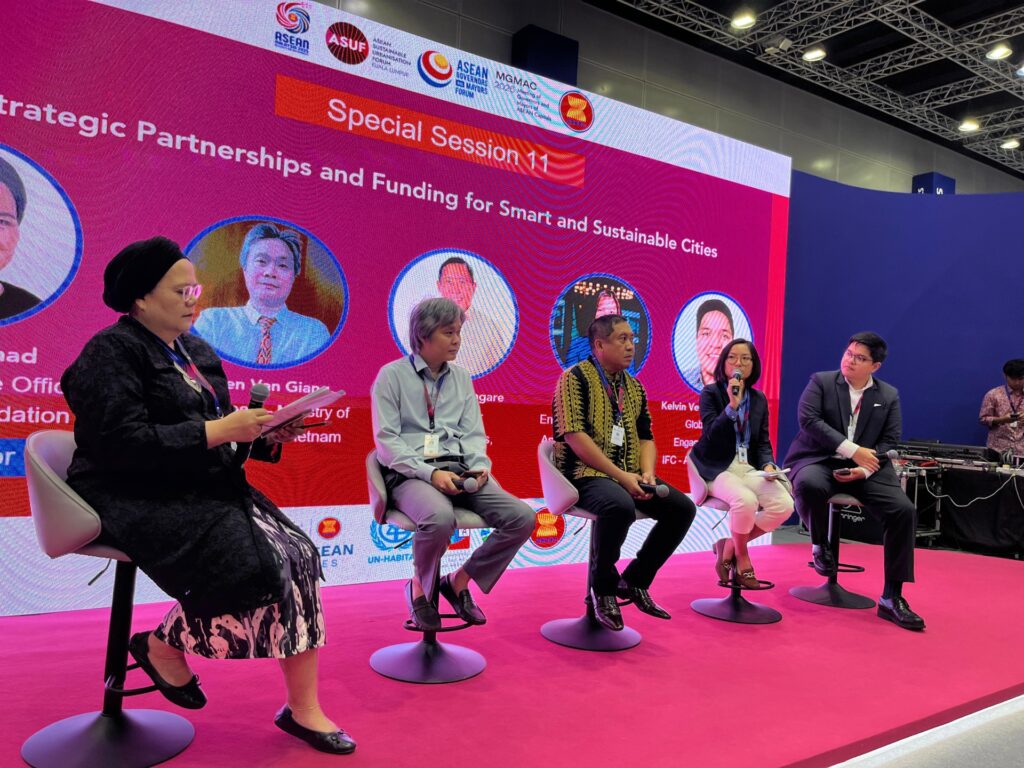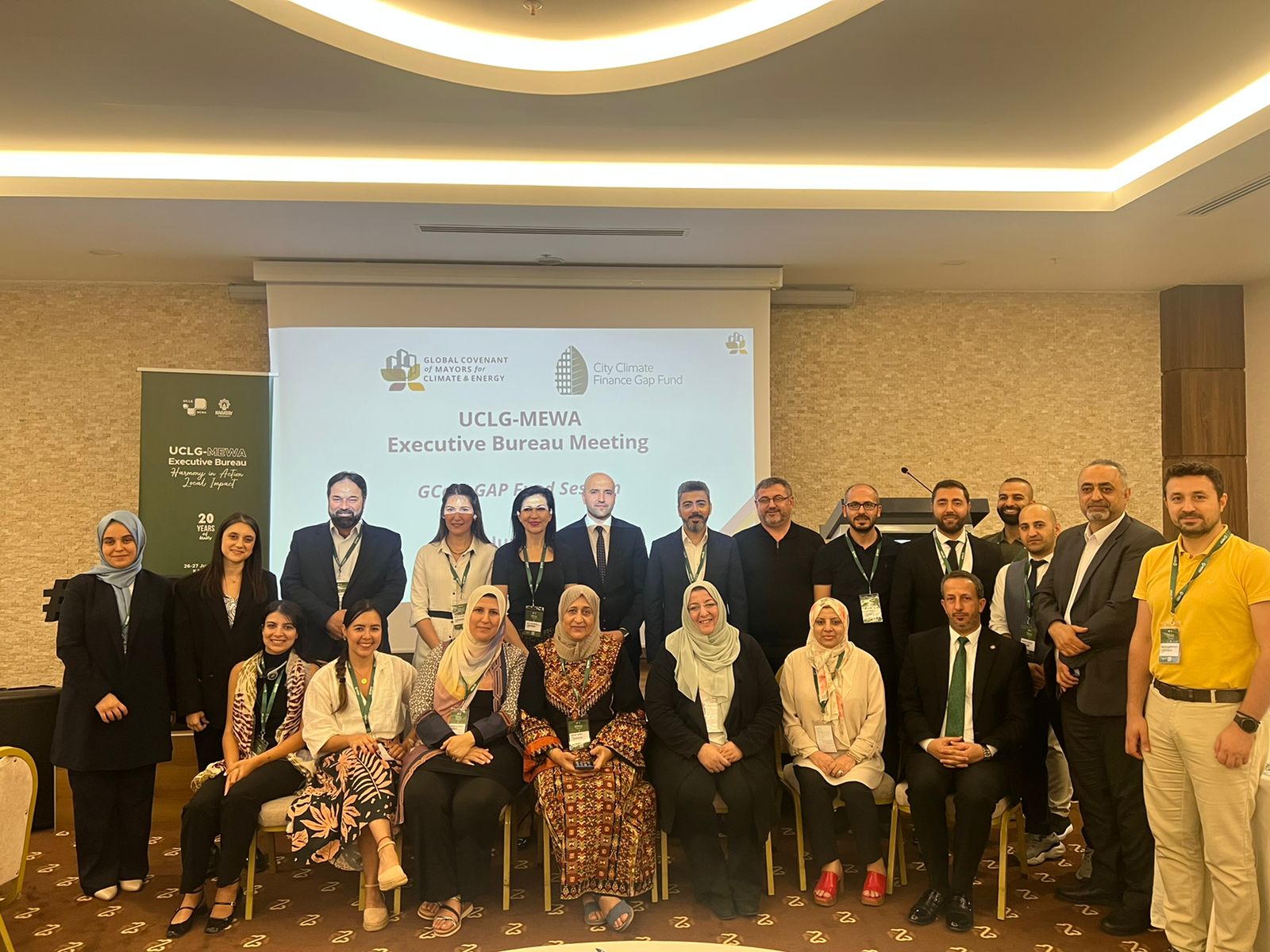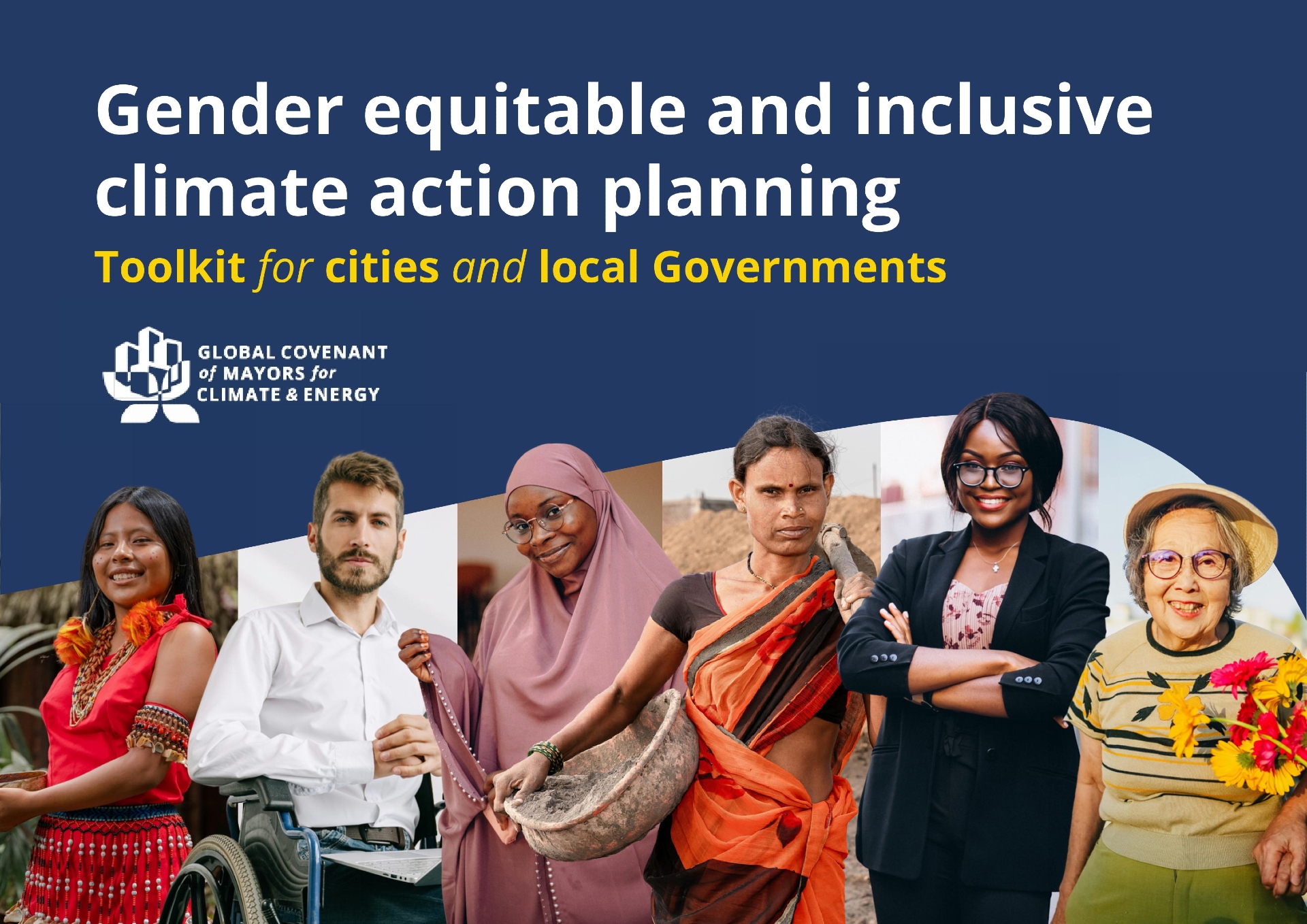GCoM-Gap Fund Partnership Showcases Leadership at the ASEAN Sustainable Urbanization Forum 2025

It was a productive week for the Global Covenant of Mayors for Climate & Energy–City Climate Finance Gap Fund Partnership team at the ASEAN Sustainable Urbanization Forum (ASUF 2025) in Kuala Lumpur, Malaysia. The team not only co-organized a high-level panel with ICLEI and the UN Office for Disaster Risk Reduction (UNDRR), but also led a hands-on training session on early-stage climate finance, while team member Jazlyn Lee contributed to the UN-Habitat’s expert-level discussions on advancing resilient urban development in Southeast Asia.
Panel on Inclusive Climate-Resilient Cities
The panel, co-convened with ICLEI and UNDRR, brought together diverse voices from across the region and beyond. ICLEI Secretary General Gino Van Begin opened with a stark reminder from the Intergovernmental Panel on Climate Change (IPCC)’s latest report: “Global warming will exceed 1.5, if not 2 degrees Celsius by the end of this century… All our efforts must be oriented towards keeping our planet in habitable boundaries.”
From Indonesia, Mayor Rico Waas of Medan City described the city’s battle with worsening tidal floods and his administration’s plan to relocate residents, strengthen coastal defenses, and expand Medan’s electric Bus Rapid Transit (BRT) system. “Nowadays we only have 60 electric buses… But we want 435 all around Medan,” he said, projecting an annual reduction of 85,000 tonnes of CO₂ emissions.
From the Philippines, Dr. Samuel Guino of Baguio City highlighted the importance of disability and marginalized groups’ inclusion in disaster risk reduction. He emphasized the principle: “Nothing about us is without us… no person with a disability in the world is really left behind.”
Kelvin Tagnipez, Global Cities Engagement Lead and Operations Officer for the APEX Green Cities program of International Finance Corporation (IFC), introduced the APEX tool, which helps cities cost their climate action plans and identify appropriate financing pathways. “Residents care about congestion, waste, and flooding. We capture these co-benefits and connect them to finance,” he explained.
Helena Monteiro, Global Engagement Lead for the GCoM–Gap Fund Partnership, spoke about the critical importance of early-stage project preparation and co-creation: “Inclusion is not just consultation — it’s co-creation, ensuring all stakeholders are at the table from the very beginning.”
Training on Early-Stage Climate Finance
The team also led a practical training session on unlocking early-stage finance, with presentations from Marvin Lagonera, Jazlyn Lee and Helena Monteiro. Participants, including city governments, universities, development partners, and private consultants, explored how the Gap Fund can help transform ambitions into finance-ready projects.
Participants learned from successful case studies and best practices in developing robust climate project proposals and building bankable projects. In his presentation, Marvin underscored the importance of transformative potential and replicability of project interventions, inviting cities to think about how their climate projects can address urban inequities, inspire fellow cities, and scale up in the future. Helena emphasized that “the ability to present a well-defined project concept, backed by data and pre-feasibility, significantly increases the chances of securing funding.”
City representatives also joined interactive breakout discussions to pitch their project ideas and proposed interventions in the areas of climate adaptation, renewable energy, and sustainable transport. Additionally, they received tailored feedback from the facilitators to improve their project eligibility.
Neil Jason Suñer, Senior Advisor for Financial Mechanisms from GIZ Urban-Act Philippines, concluded the training by emphasizing the need to strengthen cities’ capacities and readiness to access climate finance. He also highlighted the importance of continued support in helping cities and local governments develop strong applications for project preparation facilities like the Gap Fund.
Expert Engagement
Beyond the public sessions, Jazlyn Lee also joined an expert group meeting bringing together experts across the region to contribute to the Toward the Development of the ASEAN Sustainable Urbanization Report’s early consultation process, co-delivered by the ASEAN Secretariat and UN-Habitat.
The consultation gathered inputs on development trends ensuring that the perspectives of Southeast Asian cities — particularly their challenges around finance, data, and capacity — were represented in technical discussions shaping future regional support. The EGM also explored ASEAN’s evolving role in accelerating smart and sustainable development.
A Week of Collaboration and Impact
A key message across the week’s activities resonated strongly: partnership drives progress. By bringing together the networks of ICLEI, the resilience frameworks of UNDRR and UN-Habitat, the project preparation expertise of the GCoM–Gap Fund Partnership, and the financing tools of IFC, cities can better turn climate ambition into bankable, inclusive projects that leave no one behind.


